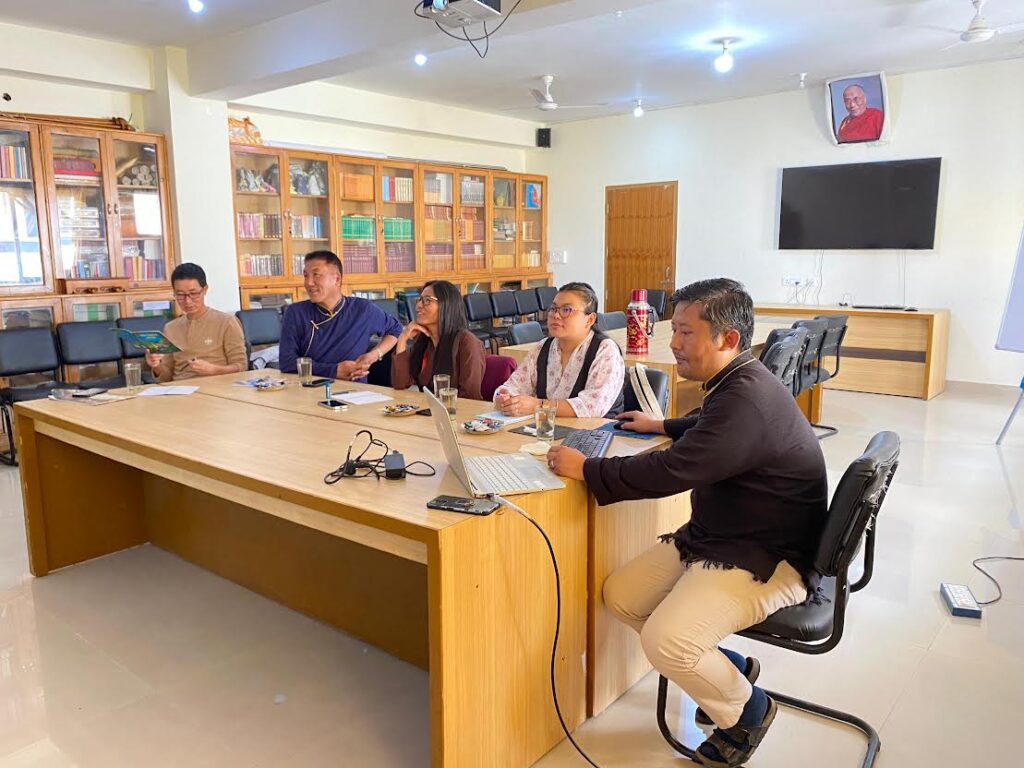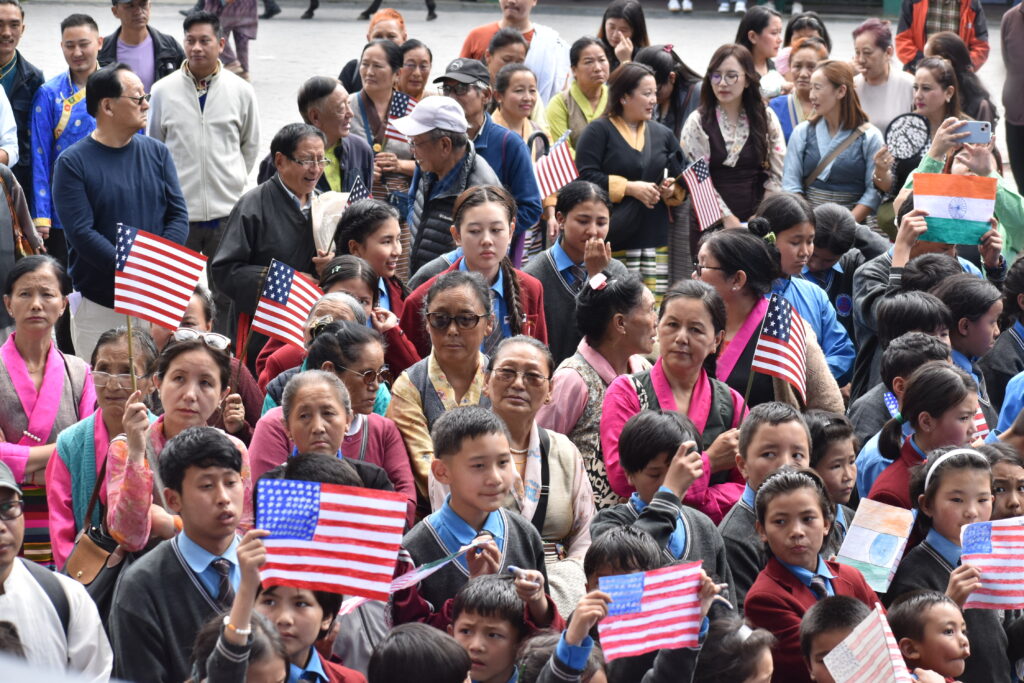
The speakers of the seminar on ‘Free Tibet: India Border Security and Peace in Asia’.
Bangalore: The Indo-Tibetan Friendship society in association with the Political Science Department of Mount Carmel College conducted a seminar on ‘Free Tibet: India Border Security and Peace in Asia’ on February 14. It was presided over by Thupten Gyaltsen, Tashi Wangdu, N. Jayaram and Col. Satish.
Gyaltsen and Wangdu, both Tibetans in exile, talked about the Chinese occupation of Tibet, the violation of the human rights of Tibetans, intellectuals, and religious representatives, and the gradual destruction of their language, religion, culture and heritage by the Chinese Communist Party. Gyaltsen talked about the risk many families take in illegally sending their children to India, including his family. “It is a treacherous journey where your life is in danger, but we do it to get a good education and achieve our dreams. There is always a longing to meet our family once again and also a fear, that we never will”, Gyaltsen.
Wangdu expanded on Tibet’s sovereignty, the formation of the Tibetan Government in Exile and their fight to free Tibet. He also talked about the UN’s non-interference in the Chinese occupation. “Unfortunately, the UN is the most undemocratic institution, even though it is supposed to protect democracy; all because of the Veto power China uses to subdue its enemies”, said Wangdu. They both talked about the water war China is waging against its neighbours, its separatist policies and its propaganda.
Jayaram, a renowned journalist, gave a brief history of China’s rise to power- overthrowing of the monarchy, the formation of a republic, the birth of CCP, civil wars, cultural movement and economic reforms. He also talked about the Chinese occupation of Hong Kong and the formation of the Extradition treaty in Hong Kong which eventually led to several people’s arrests and death, police brutality and the detention of students and intellectuals. At last, Col. Satish educated the students about the various types of borders in India that divide international territories- International border, Line of control, line of actual control, no man’s land, etc. He also talked about the different borders India shares with its neighbours and the challenges the military faces with different climatic and environmental conditions. He further expanded on several issues such as illegal migration, drug trade, fencing and division of the silk route. Col. Satish also educated the audience about the types of paramilitary forces and technologies the Indian military has in its arsenal. “Rest assured, you are in safe hands. But, war is the ugliest of businesses and brings a solution to no end”, said the Colonel.
Despite the topic of the seminar being sensitive, the speakers kept the audience engaged with their subtle humour. Political science students as well as students from other streams had shown up and the auditorium was filled to the brim. The event was educational and was successful in enlightening students about a humanitarian crisis that has been going on for decades. Events like these are means through which the silenced people of Tibet can tell their stories. As Thupten said, “The stories that come from Tibet are sad, but I happily take the opportunity to tell them because these stories must be heard”.
–Filed by the Chief Representative Office, CTA, South Zone

Students listen attentively to the seminar.

Group photo.





